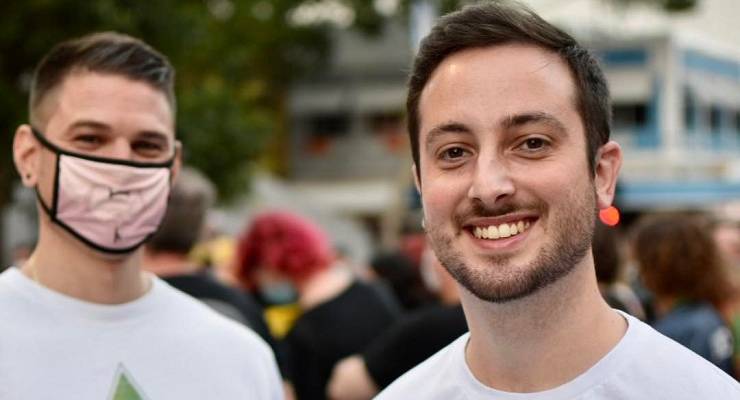
Stephen Bates, who has stolen the seat of Brisbane for the Greens, made the decision to run for politics while working in the US a few years ago and encountering a colleague who had to choose between buying insulin and paying rent.
This week, he resigned from his sales job — and will quadruple his salary. And that was an indictment on our system, he told the ABC, that we create a political class “that can be so out of touch with what the rest of the country experiences”.
Bates’ backstory is different to others, but highlights how important a politician’s background might now be in our voting decisions. More than ever, we want to know that those who represent us understand our lives; that they are real people making decisions about real people.
Consider the teal and Green victors; they include a businessman, former managing director and CEO, paediatric neurologist and architect. Their jobs might be grander than many of ours, but they’re real jobs.
They have a work history that doesn’t rely on being “anointed” to run for the next available pre-selection or spot on the Senate ticket. They haven’t just done their dues for a union or in the office of a conservative politician.
This week, in the aftermath of the election, it stood out too. After arriving home from his first international flight as prime minister, Anthony Albanese popped off to visit his mother’s gravesite. He wanted to have a quiet chat, he said. “When you grow up the way that I did, with a single mum in public housing, the expectation on your career path is not to rise to the position of prime minister,” he told the Nine Network. “I hope that my journey does give people a bit of an uplift.”
It was just a tiny slice of his day, but most of us who have lost our mothers can identify with his words, and the need for that conversation. He was still prime minister, but he was also a person who had lost his mother, and missed her.
Kristina Keneally’s loss in the safe Labor seat of Fowler has a host of lessons for the party. But she put it in perspective in a similar way in a chat with Peter FitzSimons. It couldn’t compare with the stillbirth of her daughter Caroline, “the single most defining moment in my life”, she said. “That’s when I felt searing pain, not this.”
This week, Scott Morrison drove his two daughters to school. He said he was looking forward to being a dad again, now the busy years of the prime minister’s office was behind him.
Being a dad again? That goes to the heart of the Liberal Party’s “women problem”, but it also underestimates the importance of voters wanting to identity with those in whom they entrust their vote.
We want politicians who are parents, and can understand the triumphs and heartaches that brings. We want professionals and tradespeople and men and women and politicians born here and everywhere else too. We want people who understand our lives, instead of just saying they do.








The most positive aspect of the last election is that both labor and liberal lost safe seats that serve as the career pathway to minister/prime minister. This is a disaster for careerist politicians on both sides and a triumph for Australia’s parliament representing the actual Australian community.
No more parachuting into safe seats because no party ‘owns’ any seat anymore.
Susan Ley has said,“I think that women didn’t hear much of what we were saying.” Oh yes they did. Libs still have no idea.
In Ley’s defence, it probably comes as a shock to ‘the system’, to try to come to terms with, the possibility that people you were taking for granted, might have become sick of being taken for granted?
We want diverse life experience, but fundamentally we need people with good judgment and a capacity to learn (and dare I say, compromise). The problem is that public policy is really hard – it is complex and the days of easy reform are long past. We also need people who represent their communities, but are mature enough to see that so does everyone in parliament and often those interests are competing.
The politician pay is a lame dog whistle from the new Greens member. I think it is a failure to recognise that, when you have a group of people with massive capacity for potential corruption, as governments do, decent pay imposes a potential cost to poor behaviour from loss of seats (Sharma and Wilson now need to find real jobs). We see globally that poorly paid officials (from local police upwards) are more than willing to “supplement” their pay if it is inadequate.
Great article. I remember back to the Cain government and its front bench of people most of whom had real jobs before getting elected. All the established parties have a tendency to preselect people who’s only life experience has been in think tanks, unions, peak bodies and MP’s offices. One day it would be good to see some artists, scientists and childcare workers becoming MPs!
Since when is getting elected stealing something?